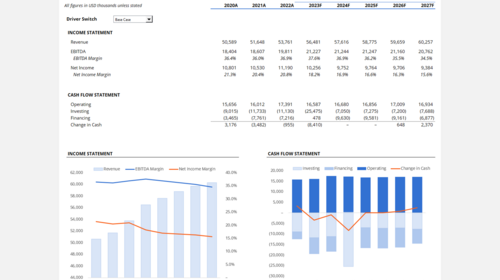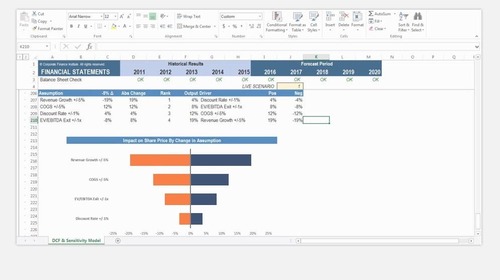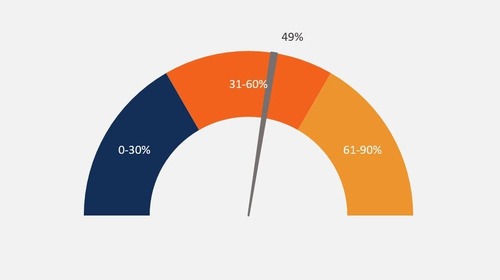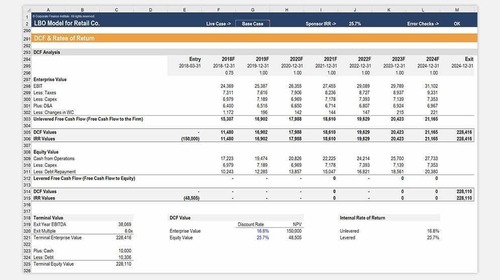Cyclical Stocks
Unlocking the potential of cyclical stocks in corporate investment
In the dynamic world of corporate finance, finance teams are continually seeking opportunities to optimize their investment strategies. One such strategy revolves around leveraging cyclical stocks, an investment approach that is deeply intertwined with the economy and the ever-changing economic landscape.
This guide aims to provide finance professionals with a thorough understanding of cyclical stocks, their behavior in different economic cycles, and the potential benefits they offer to investors.

Understanding Cyclical Stocks
Cyclical stocks, as the name suggests, are closely tied to the economic cycle. These stocks tend to rise and fall in tandem with the overall economy, making them a unique and intriguing investment option. But what exactly are cyclical stocks, and how do they differ from non-cyclical or defensive stocks?
Cyclical Stocks vs. Defensive Stocks
Cyclical Stocks
Cyclical stocks represent investments in businesses in cyclical industries, or businesses that are highly sensitive to economic conditions. These businesses thrive during periods of economic expansion and growth when consumers tend to spend money on discretionary goods and services. Examples of cyclical stocks include companies in the automotive, luxury goods, and airline industries.
Defensive Stocks
On the other hand, defensive stocks, also known as non-cyclicals or non-cyclical stocks, typically remain stable even during an economic downturn. These represent investments in companies that produce goods and services that consumers continue to demand, regardless of the overall economic conditions. Utilities, healthcare, and essential consumer goods are prime examples of non-cyclical stocks.
The Role of Business Cycles
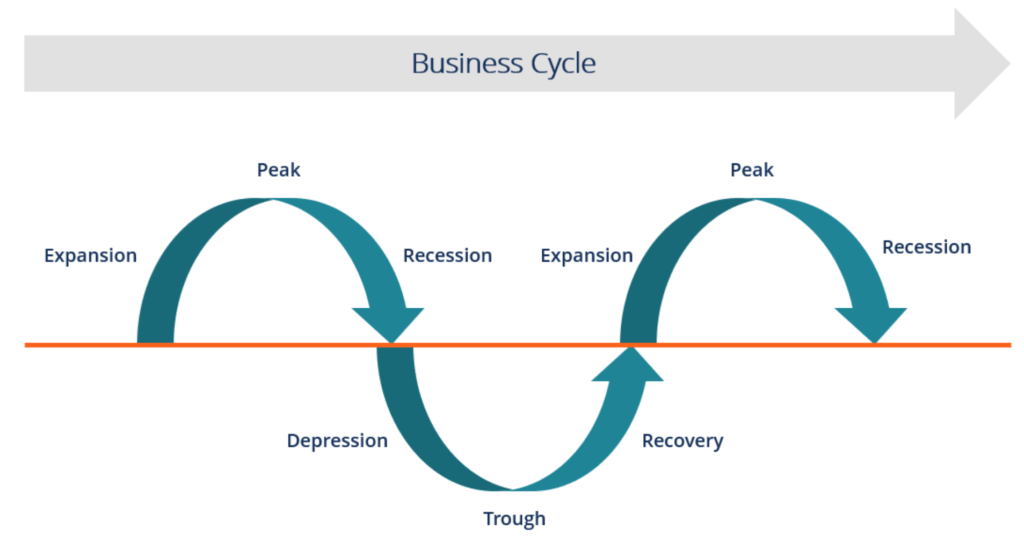
To truly grasp the concept of cyclical stocks, it’s essential to understand the role of business cycles in the economy. Business cycles, also referred to as economic cycles, encompass the phases of economic expansion, peak, recession, and trough. Cyclical stocks react differently in each of these phases, and as finance professionals, it’s crucial to be aware of these behaviors.
- Economic Expansion: During periods of economic expansion, cyclical stocks tend to thrive. As the overall economy grows, consumers become more confident and are willing to spend money on discretionary purchases, including new cars, luxury goods, and travel. This increased demand often results in rising stock prices for companies in cyclical industries.
- Recession: When the economy enters a recession, cyclical stocks can suffer. Demand for non-essential goods and services decreases, causing the stock prices of cyclical companies to fall. Investors often seek refuge in defensive stocks during an economic decline due to their stability.
- Market Recovery: As the economy begins to recover from a recession, cyclical stocks may experience a resurgence. Investors anticipate an uptick in economic conditions and buy cyclical securities at lower prices, potentially leading to significant gains as the economy rebounds.
- Peak and Slowdown: The peak of an economic cycle is a transitional phase where economic growth begins to slow down. During this phase, volatility in cyclical industries may increase, and investors should exercise caution. Companies in these sectors might experience reduced profits as consumers stop buying discretionary goods.
Understanding how cyclical stocks react to different economic conditions and markets is paramount for finance professionals aiming to make informed investment decisions.
Investing in Cyclical Stocks
Investing in cyclical stocks can offer several advantages for finance professionals looking to diversify their portfolios and potentially achieve higher returns. Here are some key considerations when investing in cyclical stocks:
- Greater Potential for Growth: Cyclical stocks have the potential to deliver high returns when the economy is booming. As more people spend money on discretionary items, companies in cyclical industries can experience substantial growth.
- Risk and Volatility: It’s important to acknowledge that investing in cyclical stocks comes with a higher level of risk and volatility compared to defensive stocks. During economic downturns, cyclical stocks may experience significant declines in value.
- Examples of Cyclical Stocks: Some prominent examples of cyclical stocks include automakers like Ford and luxury goods companies like LVMH. Walt Disney, an entertainment conglomerate, is another example of a company with cyclical stock behavior, as its revenue is closely tied to consumer spending patterns.
- Interest Rates: Keep an eye on interest rates, as these can significantly affect the performance of cyclical stocks. Higher interest rates can lead to reduced consumer spending, negatively impacting cyclical industries.
- Diversification: While including cyclical stocks in your portfolio can offer growth potential, it’s essential to maintain a diversified portfolio to mitigate risk. Combining cyclical and non-cyclical stocks can help balance your investment strategy.
Cyclical Stocks in Your Portfolio: Balancing Risk and Reward
When it comes to managing your investment portfolio, achieving the right balance between risk and reward is essential. Cyclical stocks play a crucial role in this equation, offering the potential for substantial returns while introducing a degree of risk.
Why Consider Cyclical Stocks
Including cyclical stocks in your investment portfolio can provide diversification benefits. These stocks often move independently of non-cyclical stocks, helping spread risk. Moreover, their correlation with economic cycles can offer opportunities for astute investors to capitalize on market trends.
Timing Matters
While cyclical stocks can deliver substantial returns, timing is critical. It’s essential to buy these stocks at the right point in the economic cycle. Purchasing them during an economic upswing can lead to more significant gains. However, identifying the exact timing of these cycles can be challenging.
Mitigating Risk
To mitigate the inherent risks associated with cyclical stocks, consider the following strategies:
- Research and Analysis: Thoroughly research companies within cyclical industries. Assess their financial health, competitive positioning, and management quality.
- Diversify: As mentioned earlier, diversification is key. Combining cyclical and non-cyclical stocks in your portfolio can help smooth out overall volatility.
- Stay Informed: Keep a close eye on economic indicators, such as GDP growth, unemployment rates, and consumer sentiment. These can provide valuable insights into the current phase of the economic cycle.
- Risk Tolerance: Assess your risk tolerance carefully. Cyclical stocks may not be suitable for conservative investors.
The Future of Cyclical Stocks
The future of cyclical stocks remains closely tied to the global economic landscape. Factors such as technological advancements, geopolitical events, and climate change can influence the performance of cyclical industries.
Innovations in electric vehicles, for example, can impact the automotive industry’s cyclicality. Geopolitical tensions can disrupt global supply chains, affecting various sectors differently. And climate change considerations may lead to shifts in consumer preferences, influencing the performance of cyclical businesses.
As the financial world evolves, cyclical stocks will remain a compelling option for investors. Their potential for growth and the opportunity to capitalize on economic cycles make them an integral part of a well-structured investment portfolio. However, always approach such investments with caution—considering your financial goals and risk tolerance.
Unlocking the potential of cyclical stocks in your investment portfolio requires a balanced approach. By understanding their unique characteristics, timing your investments wisely, and mitigating risks, you can harness the benefits cyclical stocks offer while managing potential downsides. Remember that a diversified portfolio is key to long-term investment success.
Cyclical Stocks: A Prudent Strategy for Informed Investors
In the ever-evolving world of finance, understanding cyclical stocks is a valuable asset for finance professionals. Understanding how these stocks behave in different economic cycles and considering their potential benefits allows finance teams to make more informed investment decisions.
While cyclical stocks come with inherent risks and volatility, their capacity for growth and attractive returns make them a compelling addition to a well-rounded investment portfolio. As always, consult with financial experts and conduct thorough research before making investment decisions in cyclical stocks.
Additional Resources
Create a free account to unlock this Template
Access and download collection of free Templates to help power your productivity and performance.
Already have an account? Log in
Supercharge your skills with Premium Templates
Take your learning and productivity to the next level with our Premium Templates.
Upgrading to a paid membership gives you access to our extensive collection of plug-and-play Templates designed to power your performance—as well as CFI's full course catalog and accredited Certification Programs.
Already have a Self-Study or Full-Immersion membership? Log in
Access Exclusive Templates
Gain unlimited access to more than 250 productivity Templates, CFI's full course catalog and accredited Certification Programs, hundreds of resources, expert reviews and support, the chance to work with real-world finance and research tools, and more.
Already have a Full-Immersion membership? Log in

